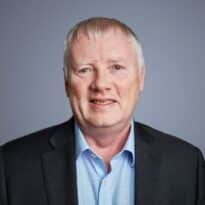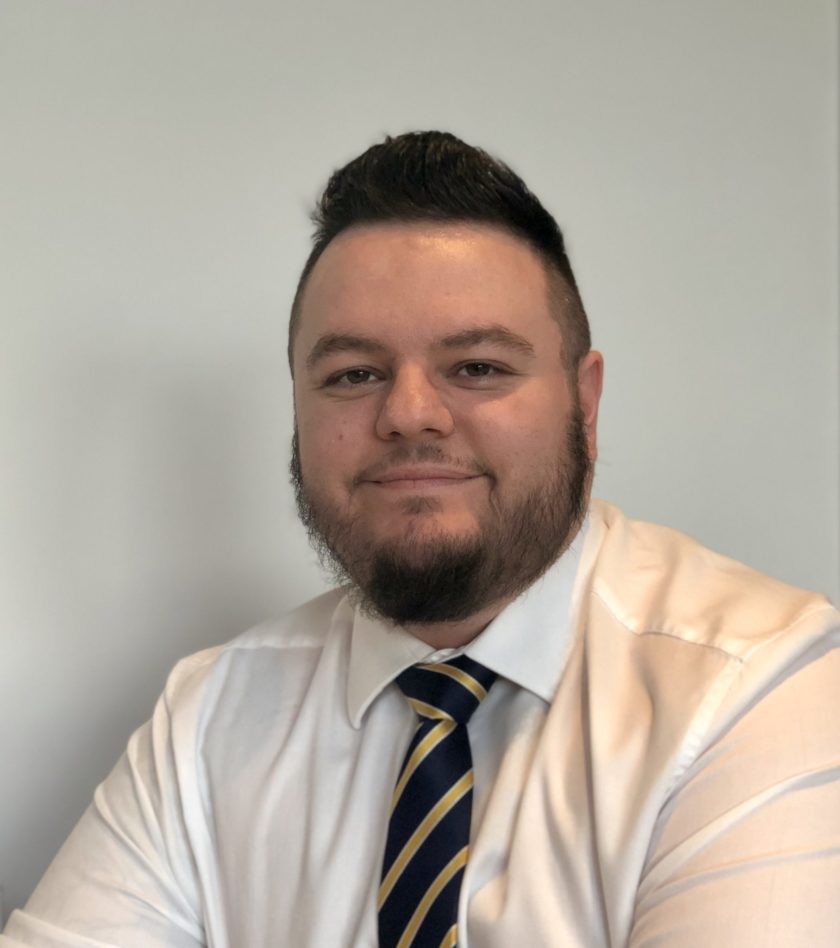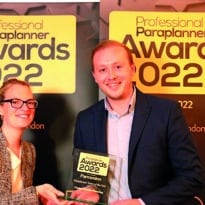Scott Daniels, director of the PLUS Group, talked to Rob Kingsbury about growing his outsourced paraplanning business to 47 people, the challenges involved and where he is taking the company from here.
Scott Daniels, director of PLUS Group, describes his decision in 2013 to start an outsourced paraplanning firm as “a risk, but a calculated one.”
“I did it with no money in the bank, I had just got married and my wife was two weeks from giving birth. But the way the industry was going I could see the demand that was there for paraplanners, particularly good paraplanners. From my point of view there’s a difference between letter writers and paraplanners – the paraplanners will challenge the advisers or give their opinion on the advice. I could see there was a gap there that I could fill, and potentially create a bigger business off the back of it,” he says.
Plus Marketing and Client Servicing, as it was then, was established with Scott as the paraplanner and his business partner Mark Lamb running a marketing and client service offering. Later providing virtual PA services, which dovetailed nicely together. “We saw opportunities for both so started as a multi-faceted business,” Scott explains.
Nevertheless, the business started from scratch. “I managed to speak to advisers I knew who were looking for paraplanner support, but we invoiced for £900 the first month and I had to put my rent on my credit card,” Scott remembers. But things quickly began building from there.
The firm benefited from the timing of its launch. “We were lucky, we hit the market at just the right time, following RDR, when there was a big demand for paraplanners, and there were few outsourced paraplanners around, particularly for the type of business we were pitching at, which was for the more complex tasks. We did a lot of IHT and drawdown cases at the beginning. We became known as the people with the knowledge to get these cases turned around quickly and to a high standard. We were lucky that the business flowed in quite nicely as a result.”
The firm also benefited from its early contacts being financial adviser ‘partners’ within St James’s Place, who then referred them on to others within that group. It now works with over 700 St James’s Place partners and advisers. “We are a preferred paraplanning supplier of St James’s Place but we don’t work for them directly,” Scott points out. “We’ve been lucky to be able to grow our presence with partner firms, something we want to take outside to other nationals and networks too.”
Firm foundations
As the business began growing, Scott brought on more paraplanners to meet the demand. It was important he says, to get the foundations of the business right from the start, in respect of standards, as well as the processes and procedures.
“We knew what we wanted the business to be and in particular, the values of the business. I never wanted us to be a ‘yes’ company. It was always a company that was going to be on a professional basis. So, we’re not afraid to query advice or offer an opinion on something a client or adviser could potentially be doing differently. That’s what good partnerships and long-lasting relationships are built off. It was something I wanted to get right from the get-go.”
For this reason, he is also a strong believer in minimum qualifications for paraplanners. “It is difficult to have those conversations and challenge where needed if you’re not as qualified as the advisers that you work with.”
Accordingly, he says, the firm encourages every paraplanner to take exams and, where possible, to go through to Chartered, “providing support where we can”. This also applies to the firm’s administrators, who are encouraged to achieve Diploma. “The more knowledge people have the better it is. You can’t have too much knowledge in the industry, even if it’s an obscure thing that you pick up on one particular case, it makes a difference to that file or that client and that’s what it’s about.”
Referrals mean the firm’s marketing budget has been minimal and, Scott says, the firm has always had the ability to attract paraplanners to it. “We’re in a fortunate position because of the structure and flexibility we offer, that we’ve never had trouble finding paraplanners to join us.”
That flexibility, he says, has been built with both the paraplanners’ work life balance, as well as the firm’s clients in mind.
“It’s not a 9-5 role; we don’t prescribe what hours people work to. We have service level agreements (SLAs) that we need to keep to and the biggest thing that we ask for from our paraplanners is that they communicate with the advisers. So as long as communication is there and the SLAs that we have as a company are stuck to, then we don’t dictate when people should be logging on or off. We have a lot of parents working around their children and things like that. So, the good paraplanners that might have had to leave the industry, we have managed to keep working and we have thrived from that.
“In the same way, because our paraplanners work remotely, we are open to paraplanners from all over the country. When you cast the net that far you attract the good quality candidate. It does not matter where they are based.”
Business operations
PLUS Group uses a cloud-based system and is in the process of beta trialing its own custom-made software, which has been three years in the making. This is designed to improve business efficiencies and communications, using one system instead of several, Scott explains. “It will give us greater control within the business and a platform for growth.”
With paraplanners dotted around the country, Scott believes it is important to bring people physically together as well. “Once a year we hold a paraplanner conference. We’re doing that this year in June at Liverpool Football Club’s Anfield stadium. We held it there last year as well. We’ve got a couple of speakers coming up to present to the paraplanners and I’ll talk about the business and then we’ll have a bit of a party night.”
In addition, the entire company attends an annual company conference, which is usually held January. “This is not just for our paraplanners but our administrators, operations and management – we all get together and have a catch-up.”
Business growth
From its two-man-band beginnings, PLUS Group is now at 47 people. Of those, 34 are paraplanners and by the end of the year Scott expects to have increased that to close to 40 paraplanners. “We’re still seeing a growing demand for the services, about 40% increase on business from last year. And that continual growth is what it has been like for us over the last 4-5 years.”
The biggest challenge as a business owner, Scott says, has been growing the firm in a controlled and sustainable manner.
“We have been in the fortunate position that new business has kept on growing, so we’ve not had to worry about that side of things. The issue has been controlling how we deliver on that growth. It would have been easy to take on as many paraplanners as we could and just get the cases written, but for us it has always been about maintaining the quality. Staying true to those values has proven to be the right decision because it’s why we’re where we are now.
“In fact, one of the hardest decisions we had to make in our early years, was to close to new business for a time. It would have been easy to keep taking work on but we were in a position where to do so would have meant we couldn’t meet our SLAs to the quality that we wanted. So, we took the decision to close to new clients for a while. Obviously, that had a knock-on effect in terms of generating new clients to grow the business, but it allowed us to take a breather, bring new people in, train them up and slowly open the gates again. That was the right decision at the time and we have managed to control the growth that way and importantly, maintain the quality that we are known for.”
When running a business of this size, at some point a business owner has to step back from daily hands-on paraplanning and focus more on running the business. Surprisingly, Scott says he only took that step about a year ago.
“It was hard because I’m one of those people who enjoy paraplanning; I enjoy the challenge of working out the best way to save clients tax and things like that. But there were things I wanted to do in the business to help grow it further, such as the software build, and reviewing our processes and what staff we needed within the business. These were all things that I wasn’t having the time to do. So, I took a big step back from the day-to-day paraplanning to concentrate on working on the business rather than in the business.”
Looking to the future, Scott’s ambition is to continue to grow PLUS Group, which will include looking to build business relationships with larger financial advice companies and networks. From an operational perspective, Scott says he appreciates also that to grow the business will mean bringing in people with expertise he doesn’t have, of making the move from a start-up business that has grown organically to one with a more corporate structure.
“It’s difficult because it’s your baby and you’ve put everything into it. But it’s realising that you don’t know everything, that you are probably not the best at everything, and now is the time to ensure we have the right people in the right place within the business to help it grow. It’s taking it to the next level.”





























